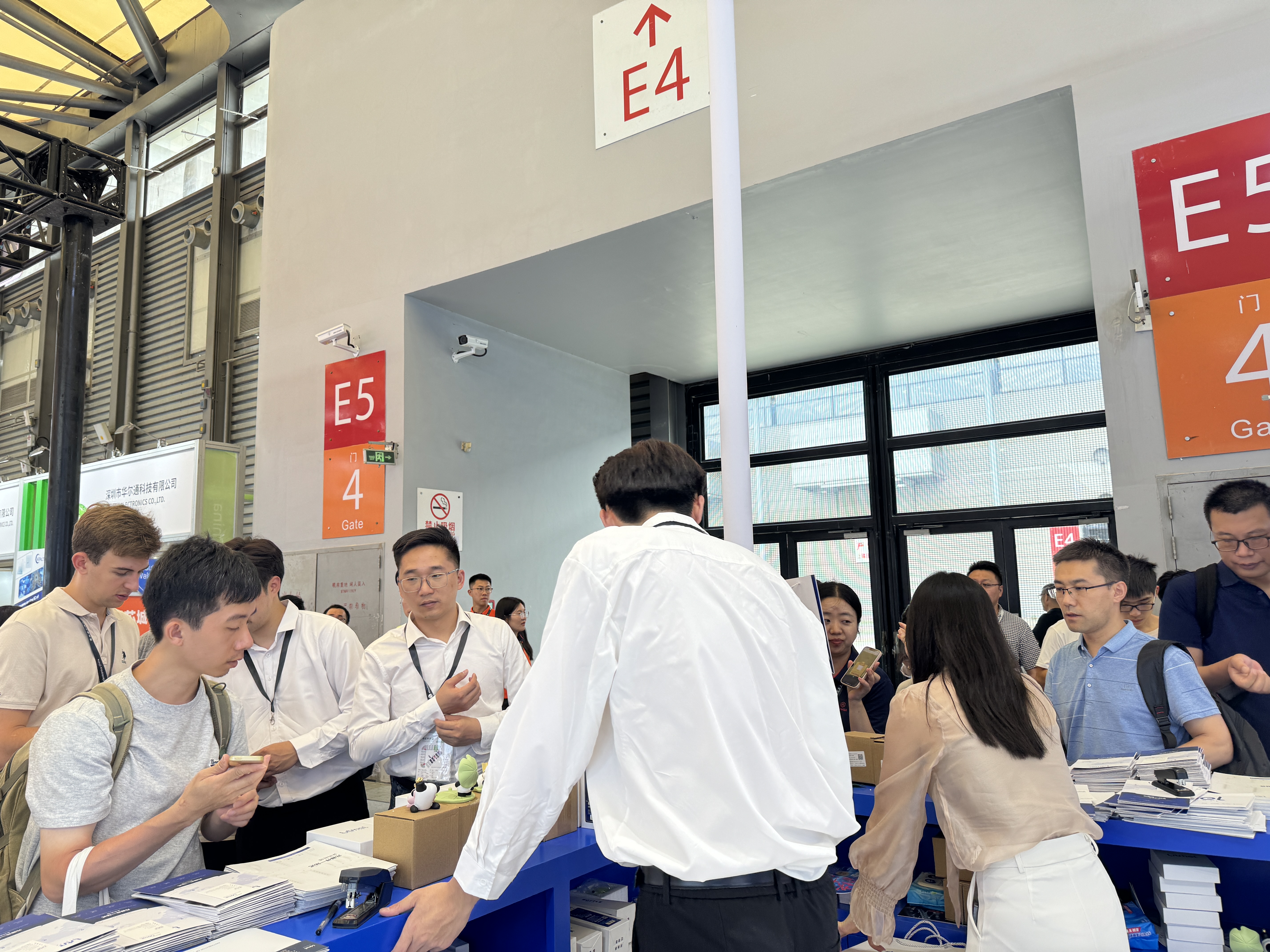Demand for Automotive Chips Will Surge 300%

Group 1 Automotive CEO on strong auto demand, chip shortage
The French media L'Usine Nouvelle (L'Usine Nouvelle) this (4) 7 cited McKinsey (Cabinet Mckinsey) research report pointed out that the global chip market size will expand double to 1 trillion U.S. dollars by 2030, of which the automotive industry demand for chips will expand by as much as three times.
McKinsey report points out that the global chip market size will grow at a considerable rate, with an average annual growth rate of 7% for nine consecutive years, and is expected to explode to $1 trillion 650 billion in 2030 after the scale exceeds $590 billion in 2021; the report is mainly based on the future prospects and development of the world's 48 largest listed companies, analyzing the growth of semiconductor demand will be driven by enterprises The report is based on the future outlook and development of 48 of the world's largest listed companies.
In terms of application areas, information will take the first place (demand will reach $350 billion in 2030), followed by wireless communication mainly for cell phones ($280 billion in 2030), and automotive will be the fourth largest sector in 2021, and will overtake the industrial sector in 2030 to take the third place ($150 billion), with a three-fold growth compared to the demand level in 2021. Experts analyze that the average annual growth rate of the automotive industry's demand for chips is 13%, which is nearly two times the growth rate of the overall chip demand.
Analysis of the automotive industry for the chip demand surge, mainly due to the promotion of vehicle electrification. For example, the fourth level of self-driving cars requires semiconductors worth 4,000 euros, while fuel cars only need 500 U.S. dollars. 2021, the automotive industry accounted for only 8% of the overall demand for chips, which is expected to grow to 13% to 15% in 2030.

On the other hand, the industrial sector is also facing a similar digital transformation and electrification, although demand will lag behind the automotive industry, will also grow at a rate of more than 9% per year until 2030. Overall, the automotive industry, information, and wireless communications will drive the overall semiconductor demand growth of about 70%.
Last year's shipments reached 52.4 billion units, how is the supply and demand situation in the automotive chip market this year?
At the beginning of March, IC Insights, a leading research firm, released its latest analysis of the automotive chip market, and the information provided by IC Insights shows that global shipments of automotive chips will reach 52.4 billion in 2021. Compared with 2020, the global automotive industry chip shipments in 2021 increased by 30%, and the automotive chip shipments increase is by far the highest, much higher than last year's total global chip shipments of 22% increase.
"Supply can not keep up with demand" has been the main theme of the global automotive industry for a long time. But in fact, the IC Insights view shows that the real reason for the shortage of automotive chips is the surge in market demand for automotive chips in 2021, rather than the inability of semiconductor suppliers to increase production. In the short term, although the tight supply of automotive chips can not be completely alleviated, into 2023, with the continuous release of automotive chip production capacity and market mechanisms continue to improve, the global automotive chip market may present a new situation of supply and demand balance.

IC Insights released data showing that, from the point of view of shipments, in 2021, global shipments of automotive chips reached 52.4 billion, three times more than in 2011 (17.6 billion). From the point of view of shipment growth, in 2021, the global automotive chip shipments are by far the highest increase, easily exceeding the 20% increase in automotive chip shipments in 2017. In addition, the number of chips sold to the automotive industry by major manufacturers in 2021 increased by 27% over the number of chips sold before the new crown pneumonia outbreak.
This shows that the real reason for the shortage of automotive chips may not be the inability of semiconductor suppliers to increase production. Wang Xiaolong, research director of Coremind, told China Electronics News that the supply of automotive chips and demand actually match, but because many automotive chips have a long business cycle, they are very easy to hoard. Some of the automotive chips are currently being hoarded, which has led to supply tensions in the market.
IC Insights then believes that the surge in market demand for automotive chips is the main reason for the supply of automotive chips to show a tight situation in 2021.
In an interview with the China Electronics Journal reporter, Ai Media Consulting chief analyst Zhang Yi specifically mentioned that the development of new energy vehicles and smart cars quickly boosted the market demand for automotive chips. Zhang Yi talked about, in the traditional industrial manufacturing field, the annual growth of chip production basically maintained between 5% to 7%. Starting from the second half of 2019 to mid-2020, new energy vehicles and smart cars have become popular in the market, and the annual increase in chip market demand has reached about 20%. Such high growth has left the automotive chip market with a capacity shortage of about 10%.
On the supply side, in 2021 the world's major fab makers set off a round of expansion wave.

TSMC in April 2021 said it would spend $2.887 billion to expand the Nanjing plant's 28nm mature process, expanding its monthly capacity of 40,000 pieces; in November of the same year, it also announced the construction of a 12-inch fab in Japan, with a monthly capacity of about 45,000 pieces; at the same time in Taiwan, China to establish 7nm and 28nm fab, both scheduled for completion in 2024.
In addition to TSMC, Samsung, UMC, Intel, and Ge-chip have also announced expansion plans in 2021. For Samsung, in May 2021, Samsung plans to increase the size of its investment in system semiconductors and foundries to 171 trillion won; in October 2021, Samsung plans to increase its foundry capacity to three times its current capacity by 2026; in November 2021, Samsung spent $17 billion to build a 12-inch fab with a 5nm advanced process.
UMC, in April 2021, UMC joined hands with MediaTek and other large chip makers to expand the capacity of the 12-inch plant in Tainan Science Park in Taiwan, China.
For Intel, in March 2021, Intel announced its "IDM 2.0" strategy, announcing a $20 billion investment in two new fabs in Arizona, U.S. In September 2021, Intel announced that it would expand production in Europe and open its semiconductor plant in Ireland to automakers. In October 2021, Intel opened additional fabs in France and Italy and established a major production site in Germany.
For Ge-Core, in June 2021, Ge-Core plans to invest more than $4 billion in Singapore to build a new wafer fab and expand capacity; and in July 2021, Ge-Core invests $1 billion to build a wafer fab in Uptown New York, U.S. The new facility is capable of adding 150,000 wafers of new capacity annually.
Because the capacity of the wafer foundry has some flexibility, so under the expansion, the chip market may reach the balance of supply and demand in some areas. Wang Xiaolong told the "China Electronics News" reporter, that wafer foundry production capacity has a certain degree of flexibility, and can adjust production capacity according to market conditions. For example, from the second half of 2021, the LCD panel driver IC is no longer out of stock, so manufacturers can divert capacity to do some of the current capacity is not enough products.

However, it should be noted that the expansion measures taken by manufacturers will not allow the automotive chip capacity to increase immediately in the short term. Wang Xiaolong said that the difficulty and cost of chip expansion are relatively high, and the development of related technologies is also a gradual process, so the efficiency of some manufacturers to expand production will be affected to a certain extent.
The general manager of Chundao Investment Consulting, Rixin Bu, also talked to the China Electronics News reporter, because the threshold for the construction of production lines of automotive-grade chips is high, so the expansion rate is relatively moderate.
For the 2022 automotive chip market can completely eliminate the supply of tight issues, many analysts' views are relatively cautious. Zhang Yi told the "China Electronics News" reporter, that although the overall global shipments of automotive chips are close to 53 billion, the short-term "shortage" problem is still a hurdle that the majority of car companies need to step over. Zhang Yi believes that in the second half of 2023, the shortage of automotive chips is expected to be alleviated to some extent.
"The chip market is large, the industry chain is complex, and it is difficult to completely reach a balance between supply and demand in the short term." Bu Rixin told China Electronics News that the supply shortage of automotive chips will still exist in 2022, but it is mainly reflected in structural shortages. One of the reasons for this is the uneven distribution of production capacity of automotive-grade chips, different categories of chips occupy different capacities.
By function, automotive chips can be divided into MCU, AI chip, power class chip, analog chip, sensor, memory, and other types of chips. Said the IC Center Senior Consultant Ji Xiannian told "China Electronics News" reporter, in 2022, MCU, AI chips, power class chips, the three types of automotive chips may continue to show an oversupply situation. Considering the entire supply chain, coupled with the relatively long development and production cycle of automotive-grade chips, this situation is expected to ease at least until after the beginning of 2023.
New energy vehicles and smart cars contain a higher amount of "core". Wang Xiaolong told the "China Electronics News" reporter, that in the new energy vehicles and smart cars, silicon-based and compound power semiconductors are currently relatively lacking.
As previously stated, the increase in production capacity in the field of chip manufacturing is a gradual process. So the current tide of expansion will cause the chip market in the latter years of overcapacity problem?
In this regard, Chi Xiannian believes that, due to the global chip manufacturing plant capacity expansion in the past two years, according to the development trend of the downstream market and the development trend of the automotive chip supply chain, it is expected that the year after the problem of overcapacity may arise.
Zhang Yi, on the other hand, believes that within the next 3 to 5 years, automotive chips are unlikely to be oversupplied. He said that the current market growth rate of new energy vehicles is very rapid, and the demand for chips for fuel vehicles remains unabated, so the market demand for automotive chips will remain at a high level.
Related News
1、Huawei Responded How to Solve the Problem of Chip Supply
2、ICinsights: MCUs Will Continue to Rise in Price
3、An Artificial Brain Chip With 86 Billion Physical Neurons
4、Japan's Three-Stage Strategy to Revive the Semiconductor Industry
5、Why Meta Did Not Choose Qualcomm AI Chip?
6、Eight Internet of Things (IoT) Trends for 2022
 UTMEL 2024 Annual gala: Igniting Passion, Renewing BrillianceUTMEL18 January 20244503
UTMEL 2024 Annual gala: Igniting Passion, Renewing BrillianceUTMEL18 January 20244503As the year comes to an end and the warm sun rises, Utmel Electronics celebrates its 6th anniversary.
Read More Electronic Components Distributor Utmel to Showcase at 2024 IPC APEX EXPOUTMEL10 April 20245463
Electronic Components Distributor Utmel to Showcase at 2024 IPC APEX EXPOUTMEL10 April 20245463Utmel, a leading electronic components distributor, is set to make its appearance at the 2024 IPC APEX EXPO.
Read More Electronic components distributor UTMEL to Showcase at electronica ChinaUTMEL07 June 20244064
Electronic components distributor UTMEL to Showcase at electronica ChinaUTMEL07 June 20244064The three-day 2024 Electronica China will be held at the Shanghai New International Expo Center from July 8th to 10th, 2024.
Read More Electronic components distributor UTMEL Stands Out at electronica china 2024UTMEL09 July 20244434
Electronic components distributor UTMEL Stands Out at electronica china 2024UTMEL09 July 20244434From July 8th to 10th, the three-day electronica china 2024 kicked off grandly at the Shanghai New International Expo Center.
Read More A Combo for Innovation: Open Source and CrowdfundingUTMEL15 November 20195028
A Combo for Innovation: Open Source and CrowdfundingUTMEL15 November 20195028Open source is already known as a force multiplier, a factor that makes a company's staff, financing, and resources more effective. However, in the last few years, open source has started pairing with another force multiplier—crowdfunding. Now the results of this combination are starting to emerge: the creation of small, innovative companies run by design engineers turned entrepreneurs. Although the results are just starting to appear, they include a fresh burst of product innovation and further expansion of open source into business.
Read More
Subscribe to Utmel !
![AME3-24SBJZ]() AME3-24SBJZ
AME3-24SBJZAimtec
![AME15-24SMJZ]() AME15-24SMJZ
AME15-24SMJZAimtec
![38WLABR5KLF10]() 38WLABR5KLF10
38WLABR5KLF10BI Technologies
![3296W-KRN-103LF]() 3296W-KRN-103LF
3296W-KRN-103LFBourns
![433PM104K]() 433PM104K
433PM104KTE Connectivity
![3009P-N86-201]() 3009P-N86-201
3009P-N86-201Bourns
![3260W-EL7-500]() 3260W-EL7-500
3260W-EL7-500Bourns
![67WFR100TR]() 67WFR100TR
67WFR100TRBI Technologies
![39PNBBR20KLF10]() 39PNBBR20KLF10
39PNBBR20KLF10BI Technologies
![38WLAAR500KLF10]() 38WLAAR500KLF10
38WLAAR500KLF10BI Technologies





